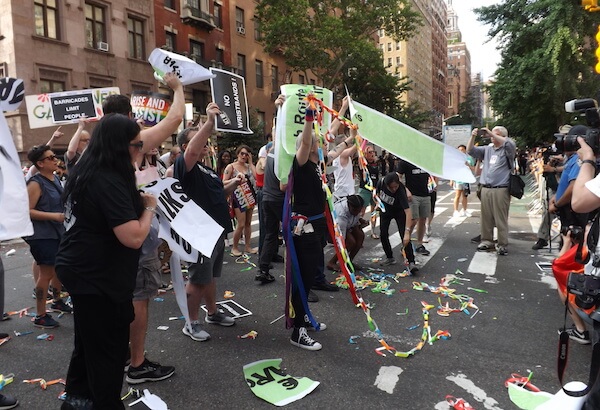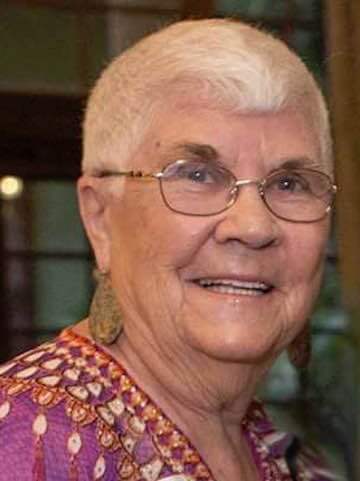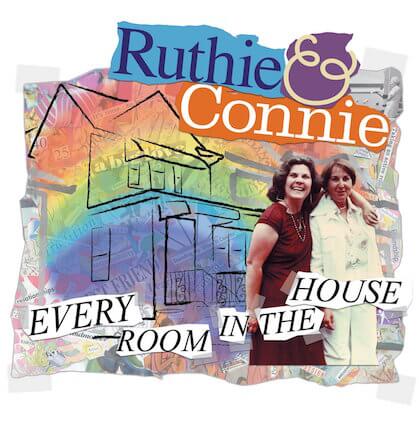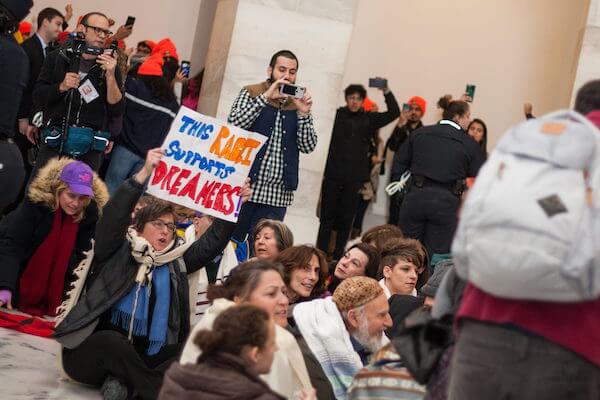WQXR general manager Graham Parker. | MARCOANTONIO.COM
When Graham Parker was 13, he was already juggling piano lessons, which he had started as a small boy, and instruction on the flute, which he had picked up two years earlier, when he also took on the daunting task of preparing for his Bar Mitzvah.
Something had to give.
To his later regret, the suburban London teenager dropped the piano. Years later, after Parker, who is 43, moved to the US in the mid-1990s, he found that his lack of lifelong piano training stood in the way of his pursuing a career in classical music conducting. In the meanwhile, he had come to recognize that the flute “was really not my instrument.”
Not that proficiency on the flute has been for naught. On March 30, Parker will appear on stage with flute superstar Sir James Galway and his wife, Lady Jeanne Galway, who is also an internationally renowned flute player.
Parker, who is general manager of WQXR (105.9 FM), New York’s classical music station, will join the Galways to help promote a cause the three of them care a lot about — getting musical instruments into the hands of New York public school students.
Music, Parker explained, is “very personal. It’s a space, something you love. Music is complicated and well written, and it challenges you emotionally. For kids, it’s discovering something about themselves through music and then making something with a friend. That’s important to a young person, and music is a magnificent representation for that.”
From March 28 through April 7, WQXR is partnering with the city Department of Education, Sam Ash Music Stores, and the Mr. Holland’s Opus Foundation — a group named for the 1995 motion picture that donates used instruments to schools across the nation — to collect at least 1,000 instruments for aspiring young musicians in the New York City public schools.
The effort includes 14 drop-off locations (wqxr.org/#!/kids/donate/), nine of them Sam Ash stores in the city, Long Island, Westchester, and New Jersey.
The drive, which was put together over a two-year period, has a budget of roughly $200,000, the lion’s share of that going to refurbishing donated instruments, work that Sam Ash is doing at a steep discount.
Cost is a barrier to city youth participating in music. Entry-level student instruments typically run north of $300, with some specialized instruments like cellos and bassoons difficult to purchase even at that price. And as students become more serious about playing, they often need to step up to better instruments that can run well over $1,000.
“If you stay at it, you are going to max out on the instrument you start out on,” Parker explained.
The Mr. Holland’s Opus Foundation, which was launched in 1996, offered helpful guidance on matters not obvious to someone putting together an instrument donation effort for the first time. Parker recalled the foundation asking whether new instrument cases would be provided, a question that caught him off guard. He now understands how important a detail that can be.
“For these city kids, a lot of their friends aren’t involved in music and even their parents might be asking them, ‘Why aren’t you playing basketball or video games?,’” he pointed out. “If a kid is taking on something new and different and then shows up with an old battered case, they can lose credibility with their friends. We sometimes don’t remember how vulnerable kids can be.”
It was data from the foundation that showed Parker how involvement in music is correlated with better academic performance by youth.
WQXR will have high profile support in two promotional events publicizing the instrument drive. On March 28, Parker, station on-air hosts Jeff Spurgeon and Terrance McKnight, and New York Public Radio president Laura Walker will be joined by Alan Gilbert, the music director of the New York Philharmonic, Nathalie Joachim and Allison Loggins-Hull, who make up the flute duo Flutronix, and music students from the Washington Heights Expeditionary Learning School for a 1 p.m. concert at Lincoln Center’s David Rubinstein Atrium at 61 W. 62nd Street at Broadway.
Two days later, Parker and the Galways will perform at the Sam Ash store at 333 West 34th Street at 2 p.m. If seeing James and Jeanne Galway were not lure enough, the afternoon also offers flute players in attendance the chance to join them on stage for a group performance. The event “is really firing up the flute community,” Parker said.
Tickets or reservations are not required for either event.
Parker’s interest in giving New York school kids a chance to play music is not simply an avocation he came to working as an adult in New York’s classical musical world. It grew out of his own experience as a young musician, where the opportunity to play and learn “affected me so profoundly,” he recalled.
In a five-minute video he put together in late 2010 for the It Gets Better Project, Parker spoke at length about what classical music meant to him during the years when he struggled to understand his feelings of being an outsider.
“I guess I always knew that I was a little different from my other friends,” he said. “I don’t think I knew then that different meant I was gay, but something didn’t feel quite right at the time. It took quite a bit of time to figure it out. I wasn’t good at sports. I wasn’t into all the things that all the other boys at my school were often into. I often felt left out and alone.”
The opportunity to explore music offered Parker a way to find self-acceptance and a community where he belonged.
“Where I felt comfort was in classical music,” he said. “Classical music became my beacon of hope. It became my beacon of hope during all those years when all I was looking for was a place I felt safe. Where being accepted was all I was looking for. Where awkward questions weren’t asked. Where I didn’t feel, for once, alone. Playing the flute, singing in choir, acting in musicals were all my escapes from feeling different. Classical music showed me how to express myself in a full, normal, and deeply personal way.”
While studying hotel and restaurant management at Oxford Brookes University, Parker continued singing in choir and performing in musical theater, but also began pursuing his interest in conducting. For a year after graduating, he stayed on at the university leading its orchestra. Then, after spending several years running a start-up specialty foods business, Parker decided to leave the UK and come to America, where he was determined to build a career in music.
It was in New York that he recognized that not having stayed with the piano at 13 would hobble his hopes of advancing further in the field of conducting. Instead, he found a marketing position with the New York Philharmonic and later had similar responsibilities with the Chamber Music Society of Lincoln Center. From there, he became general manager of the Brooklyn Philharmonic and, for the eight years prior to joining WQXR in 2010, he was executive director of the Orpheus Chamber Orchestra. In 2009, the League of American Orchestras recognized Parker’s potential for significant national and international musical leadership with its annual Helen M. Thompson Award.
Even as Parker advances his professional life, he remains active as a performer. It was in the choir at Congregation Beit Simchat Torah, Manhattan’s LGBT congregation, that he met his future husband, with whom he is raising two young children in Washington Heights. For several years, he was also a part-time cantor with the congregation.
At WQXR, Parker works “to engage” youth in classical music, both through its programming and its website at wqxr.org.
“Kids need to hear great performances of Beethoven’s 9th,” he said, emphasizing the station’s commitment to presenting the finest recordings of major works. “There’s a reason they’re the classics.”
For the next week, though, Parker is focused not just on having youth experience classical music but also on helping them to perform it on their own. For all the planning the radio station and its partners have put into the instrument drive, he recognizes that convincing the public to join the effort is the whole ballgame.
“The only way it works is if people donate,” Parker said. “They really need to get the ladder down, go into the attic, and grab those instruments that have just been sitting there.”


































